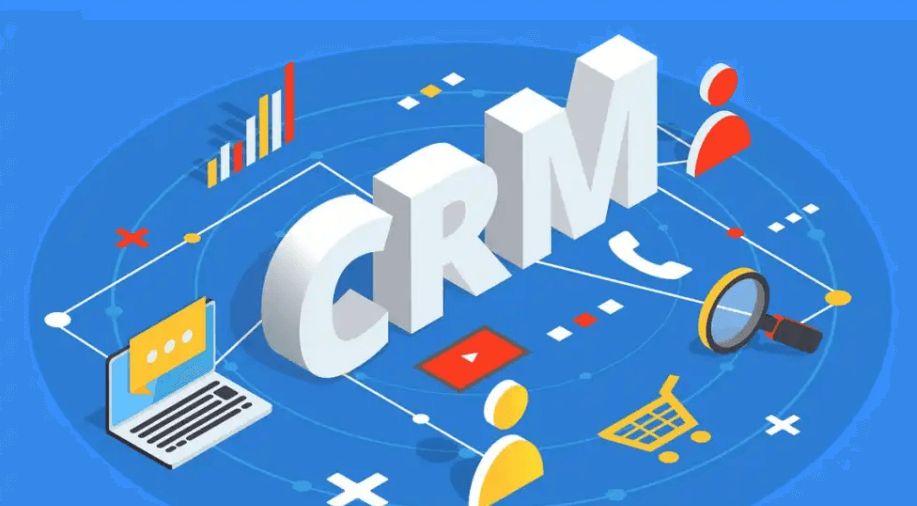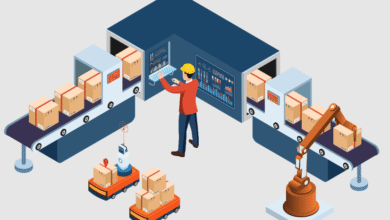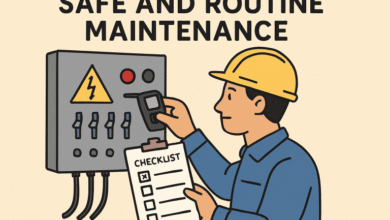5 Industries That Can’t Thrive Without a CRM System in 2025

As technology continues to transform the way we work, businesses in almost every sector are rethinking how they manage customer relationships. In 2025, a Customer Relationship Management (CRM) system is no longer a nice-to-have — it’s a must. With rising customer expectations and growing competition, industries that rely heavily on client interaction, sales cycles or service delivery can’t afford to fall behind.
CRM solutions help businesses stay organised, track communications, automate tasks and improve the overall customer experience. For some industries, adopting a CRM system is not just about efficiency. It’s about survival in an increasingly digital world.
Here are five industries that won’t be able to thrive without CRM systems in 2025 and why these tools are essential for their future.
Table of Contents
1. Real Estate
The real estate industry has always been people-driven. Agents and agencies juggle multiple clients, listings, inspections and negotiations. In 2025, clients expect faster responses, personalised service and up-to-date information at all times.
CRM solutions help real estate professionals manage property listings, follow up on leads, schedule appointments and maintain clear communication with buyers and sellers. Features like automated email follow-ups, property matching, and integrated calendars allow agents to stay on top of their game without missing a beat.
In such a fast-moving environment, a CRM system enables agents to build trust, close deals more quickly and provide a better overall client experience.
2. Healthcare
Healthcare providers face ongoing pressure to provide high-quality care while managing their resources effectively. appointments, patient records and communication. While Electronic Medical Record (EMR) systems handle medical data, CRM solutions are becoming increasingly important in managing patient engagement and non-clinical interactions.
In 2025, healthcare organisations must stay proactive in patient communication — whether it’s appointment reminders, follow-up care, satisfaction surveys or educational outreach. CRM systems make it easier to personalise care outside of treatment and improve overall patient satisfaction.
For private practices, dental clinics or allied health providers, CRM tools help reduce no-shows, streamline workflows and enhance the overall experience for both patients and staff.
3. Financial Services
Trust, timing and personalisation are critical in the financial services sector. Whether you’re a mortgage broker, insurance agent or financial planner, staying organised and responsive is key to keeping clients and winning new ones.
CRM solutions help manage client data securely, track interactions and set reminders for important follow-ups or policy renewals. With compliance requirements and regulatory standards always changing, a CRM also ensures that communication is documented and accessible when needed.
In 2025, clients expect advisors to anticipate their needs and offer tailored advice. A good CRM system supports that by giving professionals a full view of each client’s history, preferences and goals.
4. E-Commerce and Retail
Online and in-store retailers face stiff competition in a market that changes rapidly. In 2025, understanding customer behaviour and offering a personalised shopping experience is more important than ever.
CRM systems allow businesses to track customer purchases, manage loyalty programs, run targeted marketing campaigns and provide better support. E-commerce brands, in particular, use CRM solutions to analyse data from website visits, email interactions and customer service chats to improve their marketing and retention strategies.
For retail businesses aiming to increase repeat purchases and boost customer lifetime value, a CRM system is essential. It helps you go beyond simple transactions and build long-term customer relationships.
5. Professional Services
Consultants, agencies, legal firms and other professional service providers depend on strong client relationships to grow. Managing proposals, contracts, billing and communication can quickly become overwhelming without the right tools.
CRM solutions help these businesses streamline project management, track service delivery and nurture leads throughout the sales cycle. Features like task automation, email templates and reporting dashboards allow small teams to operate efficiently and professionally.
In 2025, clients want clear communication, fast updates and transparency in service delivery. A CRM system helps service providers stay responsive and organised, which builds credibility and trust over time.
Why CRM Is No Longer Optional
Across all these industries, the need for CRM solutions is driven by one core truth: the customer experience matters more than ever. People have more choices and higher expectations. They want personalised service, quick responses and consistent communication.
A CRM system helps businesses meet those expectations by giving them a clear view of their customer relationships and the tools to manage them effectively. In many ways, it becomes the backbone of your marketing, sales and service processes.
Investing in a CRM is not just about keeping up with competitors — it’s about creating better experiences, working smarter and growing with confidence. Whether you’re running a small clinic or a large agency, the right CRM solution can help your business build stronger relationships and prepare for a more connected future.
See also: Custom vs Ready-Made: Which Type of Jewellery Is Right for You?



